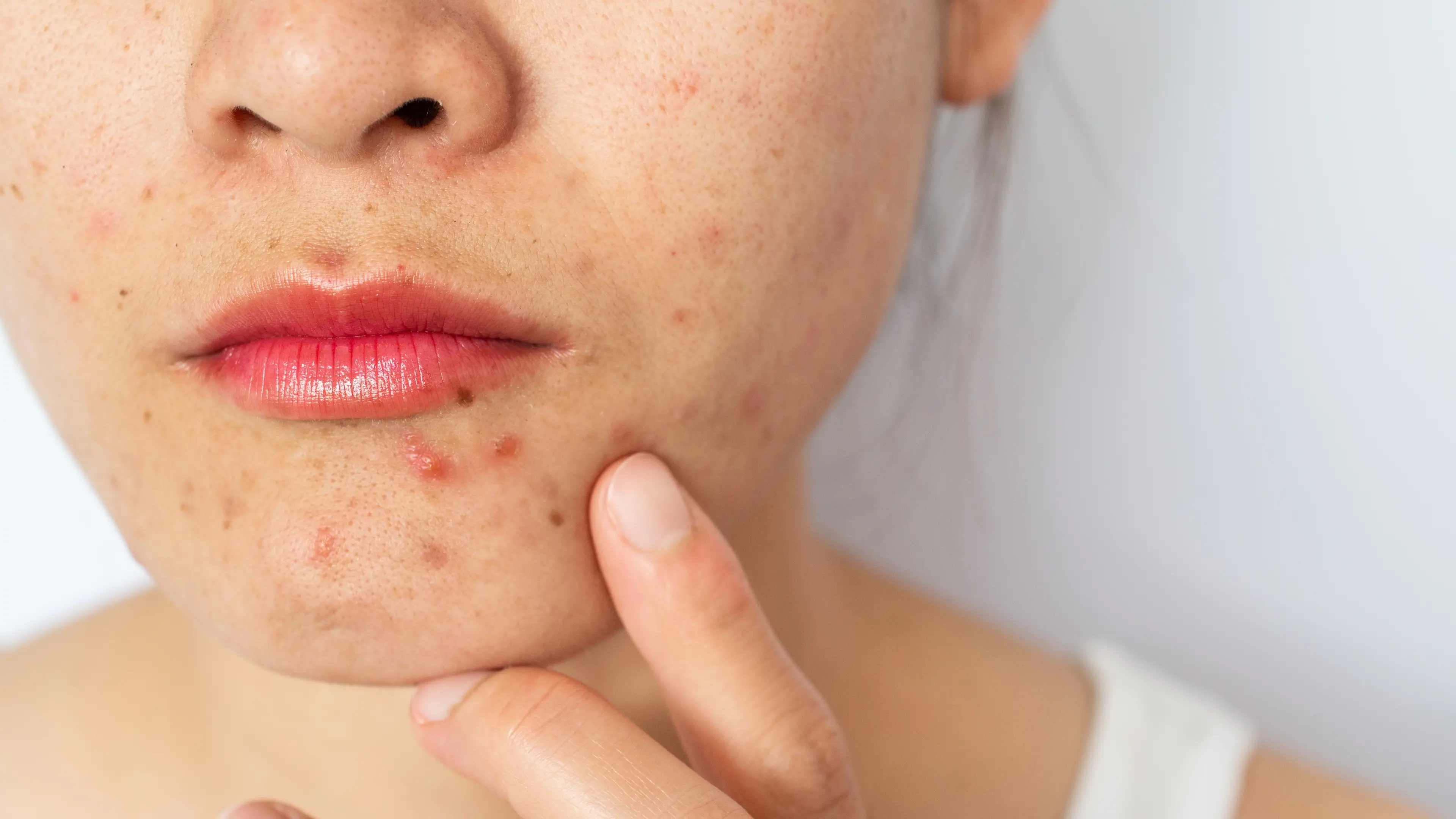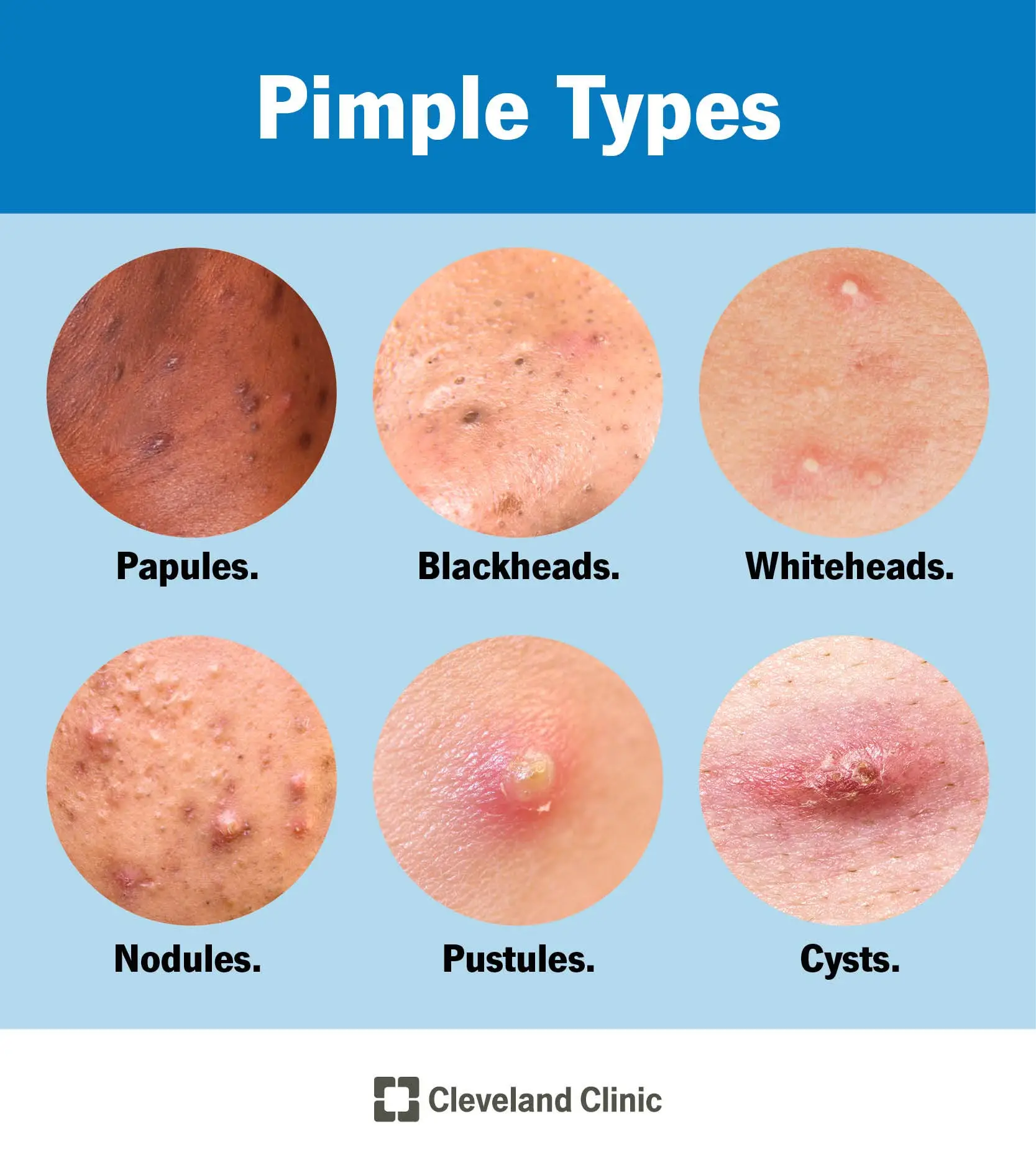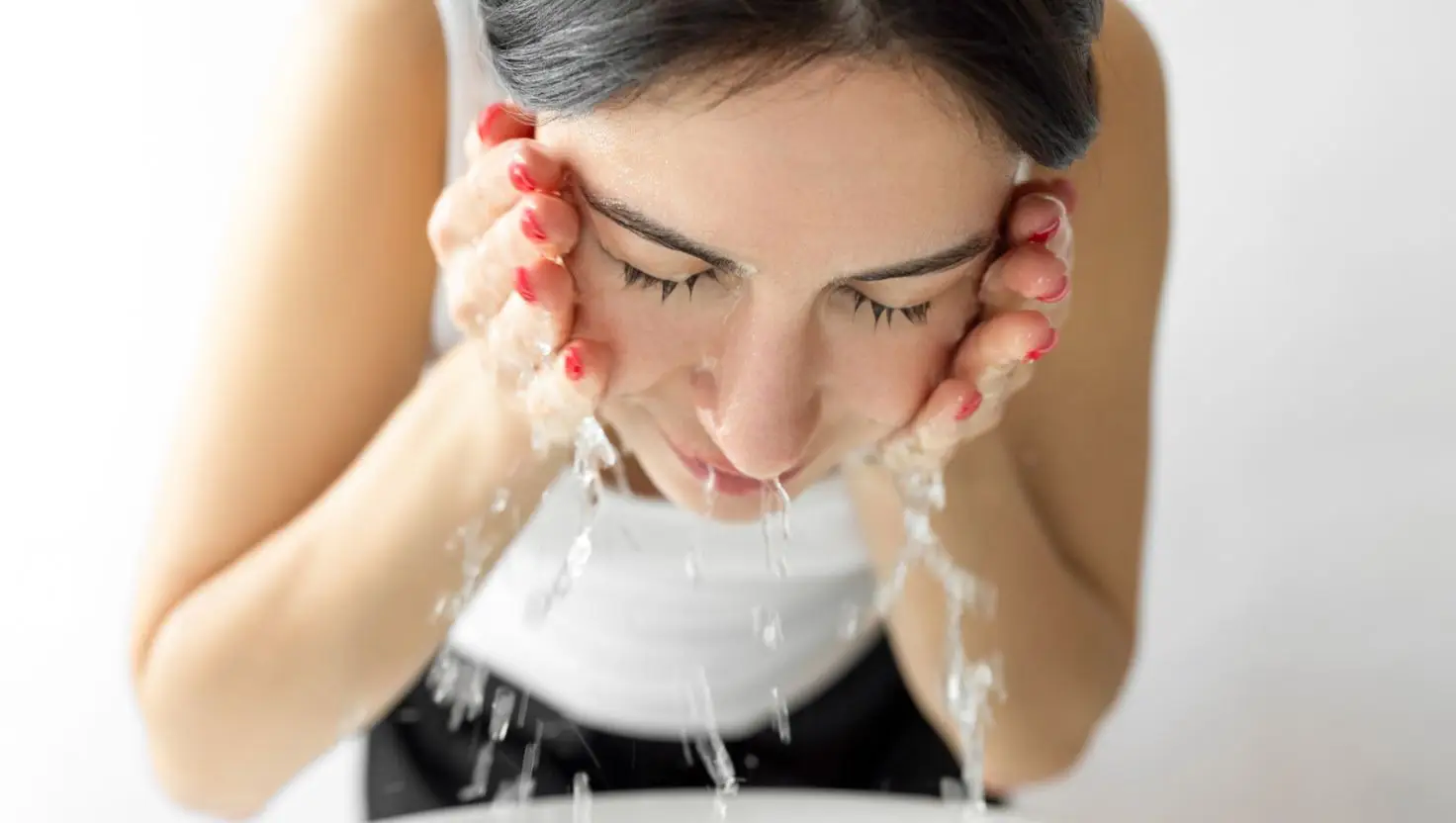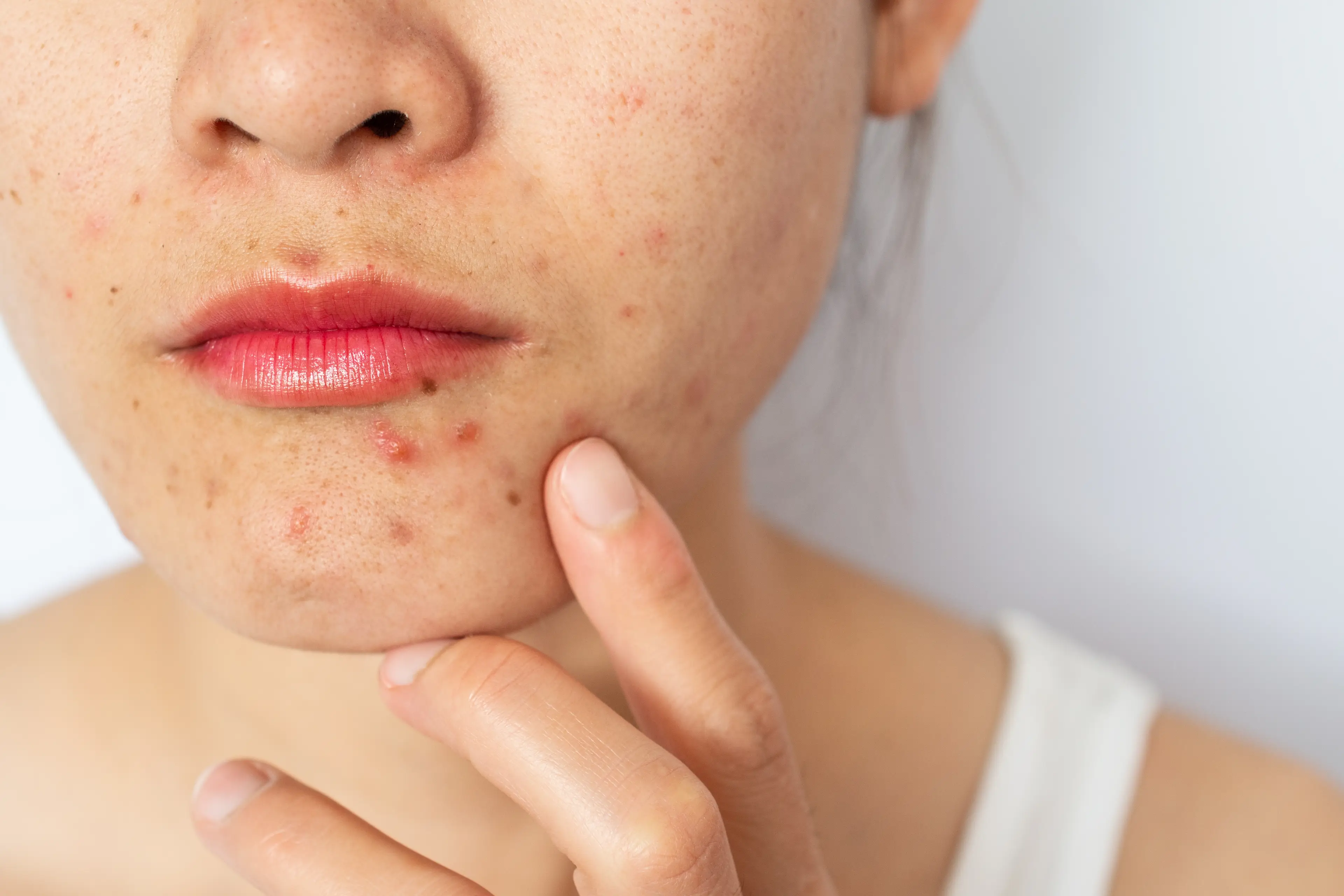
A medical dermatologist has outlined exactly why thousands of young people are experiencing acne - and it isn’t because of what we’re eating.
The phrase ‘treat yourself’, popularised by Parks and Recreation, is different for everyone.
For some, it’ll be a posh reformer pilates class. For others, it’s a brand-new bag they’ve had their eye on, while many will opt for an über cheesy pizza with all their favourite toppings.
But have you ever woken up the morning after eating said greasy food and swore you’d developed acne overnight?
Advert
For years, researchers claimed greasy food was the cause of acne in young people, but it turns out they may have been wrong after all.
What is acne?
Acne, a common skin condition that usually happens when hair follicles under the skin become clogged with excess oil or skincare products.

These blockages cause whiteheads, blackheads, and other types of spots, including painful cysts and pustules.
There are several types of acne, including common forms such as cystic, fungal (pityrosporum folliculitis), hormonal, and nodular acne.
The latter, considered a severe form of the skin condition, causes pimples on the surface of your skin and tender, nodular lumps under your skin, as per the Cleveland Clinic.
Unfortunately, acne doesn’t just pop up on your face. It can also develop anywhere with a high concentration of sebaceous glands, which means you could also experience nodules and fungal acne on your back and chest.
Acne numbers and presumed causes
According to a 2024 study published in the British Journal of Dermatology, around 14.65 per cent of adolescents and young people in the UK were diagnosed with acne between 1990 and 2021 - among the highest globally.
Meanwhile, the age-standardised prevalence rate of acne among people aged 10 to 24 increased from 8,563.4 per 100,000 people in 1990 to 9,790.5 per 100,000 population in 2021, as per The Guardian.
There are multiple factors attributed to these worrying numbers, with the British Association of Dermatologists (BAD) stating it could be linked to increased pollution and other environmental issues.
BAD also claimed it could be because people were quicker to see a healthcare professional about their acne or lifestyle factors.
Previously, it’s been said that acne-prone people with oilier skin are more likely to suffer breakouts when they eat greasy, fast food like burgers, pizzas and kebabs. But, according to a medical dermatologist, that’s not quite the case.
Does greasy food cause acne?

If you’ve put down your favourite food because you thought it was causing you spots, then Dr Rosalind Simpson, a medical dermatologist at the University of Nottingham, has some good news.
Speaking to The Guardian on Monday (August 25), the health professional revealed that the primary cause of acne is actually your genetics and hormones - and probably not the late-night chicken burger you’ve chowed on recently.
“People think that eating greasy food increases oil on the skin, which leads to acne,” Dr Simpson explained. “But that’s a misconception. The oil on your skin – sebum from pores – is mostly influenced by hormones and genetics.”
How do hormones influence acne?

Simpson told the outlet that the primary cause of acne is an increase in androgens, a group of male steroid hormones, which help start puberty in both boys and girls.
These hormones trigger your body to produce more sebum.
Therefore, the more of the natural, oily, waxy substance your glands are producing, the more likely it is that the substance will mix with dead skin cells and block your pores.
The outlet also reported that other hormone shifts, such as those caused by polycystic ovary syndrome or progesterone-only contraception, can be to blame for your acne, as well as your wider diet.
“There’s emerging evidence that refined sugars may contribute,” she explained.

The medical professional added that you should see a doctor if you’re worried about spots, rather than try to dramatically restrict yourself from your weekly takeaway.
“People try to change their diet to treat acne, but restrictive diets can be harmful, especially for teens, unless done under medical supervision,” Dr Simpson added.
So, since it hasn’t been scientifically proven that greasy foods cause acne, we won’t feel bad about that extra slice at dinner tonight.
How can you prevent acne?
Although acne cannot be cured, it can be controlled with treatment. The NHS advises anyone with mild acne to speak to a pharmacist for advice.
If your acne is severe, your doctor may advise you to take a course of antibiotics or apply stronger creams that are only available by prescription.
There are several things you can try if you have acne, including not washing affected areas twice a day and avoiding oil-based makeup, skincare, and sun care products.
The NHS recommends using water-based, non-comedogenic products, as they’re less likely to clog the pores in your skin.
Other things you can do are wash your hair regularly and avoid squeezing spots, as this can lead to permanent scarring.
